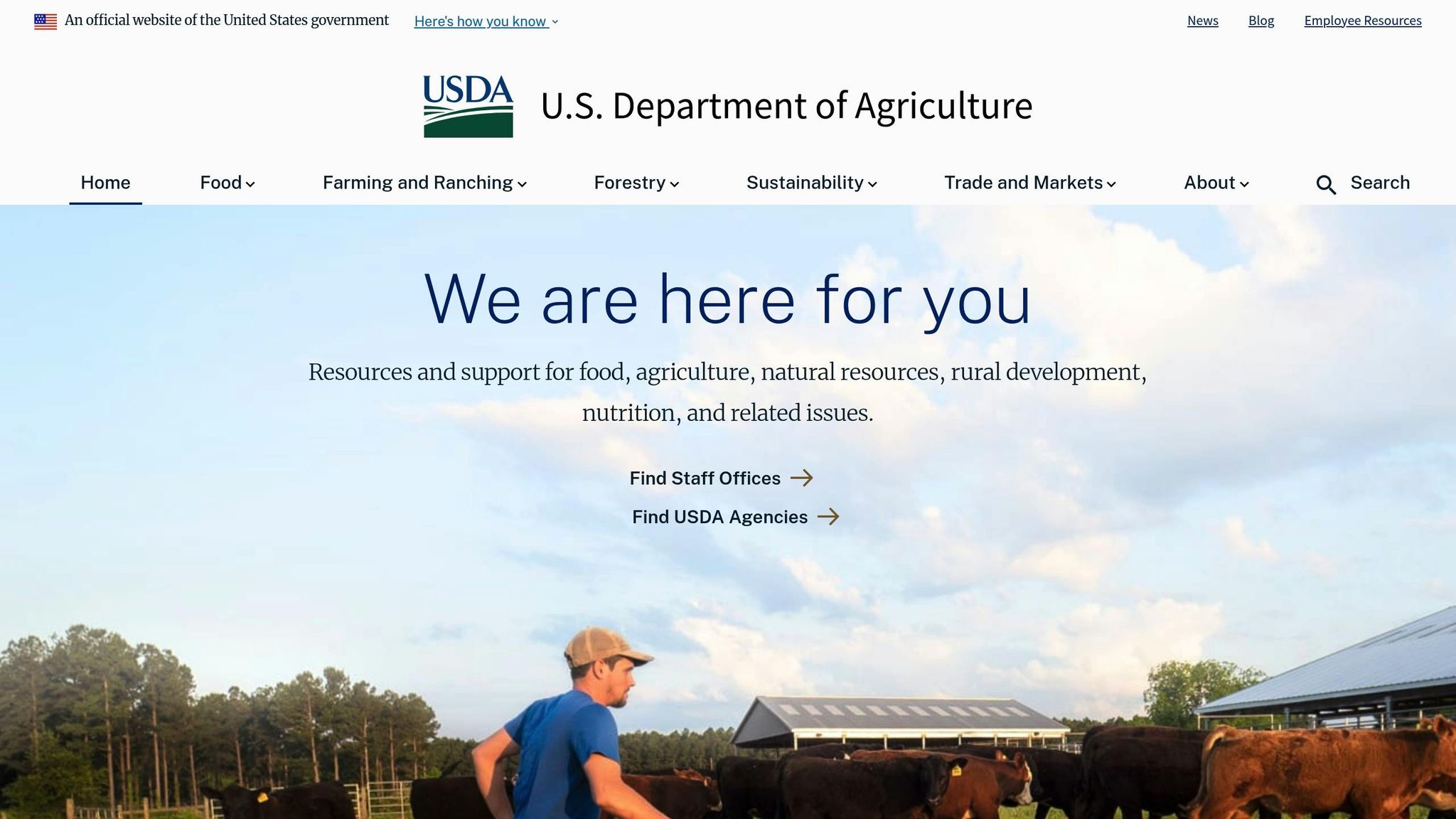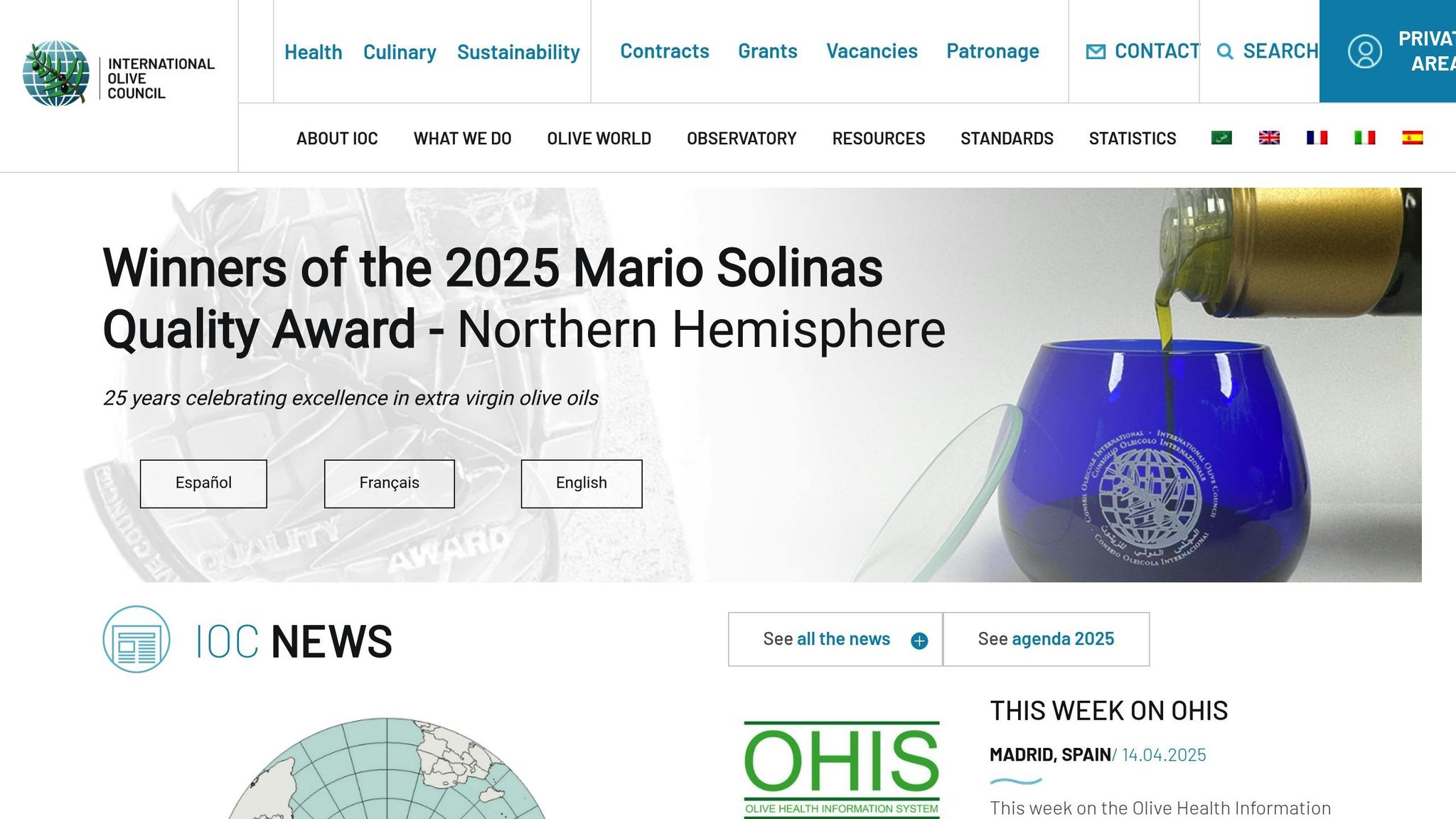How Olive Oil Certifications Protect Buyers
Olive oil certifications ensure you're getting high-quality, pure products. They verify claims, protect against fraud, and help you make informed choices.
Why Certifications Matter:
- Purity: Confirms no additives or blends.
- Quality: Ensures proper production and handling.
- Freshness: Verified storage and crush dates.
- Safety: Meets strict safety standards.
Key U.S. Certifications:
- USDA Quality Standards: Grades olive oil based on acidity and flavor.
- COOC Seal: California-specific certification for freshness and purity.
- IOC Standards: Global benchmarks for quality.
- USDA Organic: Verifies organic farming and processing.
Pro Tip: Look for seals, check crush dates, and buy in small quantities to maintain freshness.
How to buy the best olive oil (and what's the difference ...
Main U.S. Olive Oil Certifications
In the U.S., several certification programs are in place to ensure olive oil quality and authenticity. These programs help shoppers identify products that meet specific quality and production standards. Here's a breakdown of the main certifications.
USDA Quality Standards

The United States Department of Agriculture (USDA) offers a voluntary grading system for olive oil. This system evaluates oils based on chemical composition and taste. Grades range from "U.S. Extra Virgin Olive Oil" to "U.S. Olive Oil", with each grade requiring specific standards for acidity and flavor.
California Olive Oil Council (COOC) Seal
The California Olive Oil Council (COOC) focuses on certifying olive oils made in California. To earn the COOC seal, oils must pass lab tests and sensory evaluations conducted by trained panels. Certified oils must also meet strict freshness and storage standards. Look for the COOC seal on the label to confirm certification.
International Olive Council Standards

The International Olive Council (IOC) sets global benchmarks for olive oil quality. These standards cover testing methods, chemical and sensory evaluations, and proper storage practices. Many U.S. certification programs are based on IOC guidelines, and some producers, like Big Horn Olive Oil, go beyond these standards.
USDA Organic Seal
The USDA Organic certification ensures that olives are grown without synthetic fertilizers or pesticides. It also verifies that no artificial preservatives are used during processing and that production methods support soil and water conservation through detailed record-keeping. Look for the USDA Organic seal to confirm these practices.
sbb-itb-4066b8e
Buyer Protection Through Certification
Purity Testing
Certification programs rely on detailed chemical testing to identify any mixing with lower-grade oils, ensuring the authenticity of extra virgin olive oil. For example, Big Horn Olive Oil emphasizes their commitment to purity, stating their products are "Always pure EVOO, never mixed with other oils". These certifications also include broader evaluations of quality.
Quality Standards
Certifications assess several key factors to guarantee high-quality olive oil:
- Chemical Properties: Oils must meet specific acidity levels and maintain proper chemical composition.
- Sensory Characteristics: Trained tasting panels evaluate flavor, aroma, and overall freshness.
- Smoke Point: High-quality extra virgin olive oil should have a smoke point exceeding 410°F.
Label Accuracy
Certified programs ensure that labels provide accurate and essential details, such as:
- Harvest dates and production information
- Geographic origin of the oil
- Grade classification (e.g., Extra Virgin, Virgin)
- Production methods and standards
- Proper storage recommendations
Accurate labeling, paired with strict safety measures, helps protect consumers.
Safety Requirements
Safety certifications enforce strict guidelines, including regular facility inspections, measures to prevent contamination, monitoring of storage conditions, adherence to equipment standards, and proper product handling.
To keep your certified olive oil fresh after purchase, opt for smaller containers that can be used within a few months. This helps preserve the oil’s quality and flavor over time.
Understanding Certification Seals
Main Certification Marks
Certification seals on olive oil packaging are a quick way to confirm the oil meets strict quality and authenticity standards. These seals typically cover:
- Purity Verification: Ensures the oil is 100% pure extra virgin olive oil.
- Quality Grade: Confirms the oil meets specific quality benchmarks.
- Origin Authentication: Verifies the geographic source of the olives.
- Temperature Ratings: A smoke point of 410°F or higher, like Big Horn Olive Oil, is a sign of high quality.
These marks help you navigate labels with confidence, ensuring you're choosing a product that meets rigorous standards.
Reading Certification Labels
When checking certification labels, pay attention to these key details:
- Crush Date: Look for the harvest or crush date to assess how fresh the oil is.
- Certification Date: Ensure the certification date is recent to confirm the oil has passed up-to-date quality checks.
Conclusion
In summary, olive oil certifications are the backbone of quality and safety in the industry. They ensure that the products you buy are genuine and meet high standards.
Take certified olive oils, like those from Big Horn Olive Oil, for example. These oils consistently reach a smoke point of 410°F or higher and are made using only the top 5% of olives. This directly reflects the rigorous certification standards, offering clear benefits to consumers.
"The very healthiest oils you can buy." - LakeTahoeGem, Google Review (Local Guide)
Here are some tips to keep in mind when buying olive oil:
- Look for the crush date and use the oil within 9 months.
- Check for certification seals to verify quality.
- Match the smoke point to your cooking needs.
- Pick a size that you can finish within 3 months.

